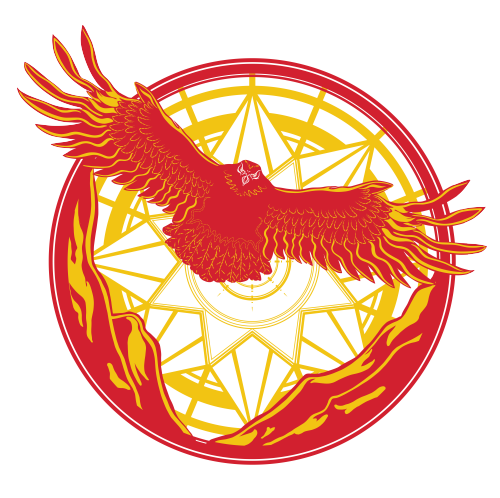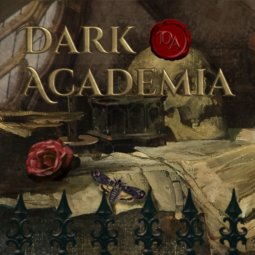INSTRUCTORS:
Looking to purchase an Anytime Audit? Our Lectures are moving! Click HERE to learn all about it.
Child of the Gothic, cousin of the schooldays story, neighbor of true crime, and frequent collaborator with the fantasy, science fiction, horror, and mystery genres, Dark Academia gained widespread attention with the bestselling The Secret History by Donna Tartt (1992) and award-winning Waking the Moon by Elizabeth Hand (1994), but its roots reach back deeply into nineteenth-century speculative fiction, revealing fascinations with scholar/student characters who pursued ancient knowledge, clandestine research, and taboo experiments. Schooldays stories also portrayed the campus as a kind of isolated pressure cooker, intensifying the larger political, social, and even psychological forces acting on those who survived – or failed to survive – their time as students or professors.
By the mid-twentieth century, both real and imagined campus mysteries informed key works such as Shirley Jackson’s Hangsaman (1951) and Joan Lindsay’s Picnic at Hanging Rock (1967). Dark Academia also expanded its reach over time to influence film and television, fashion and aesthetics. In the twenty-first century, and especially since 2016, Dark Academia has exploded as a thriving field producing multiple mainstream and young-adult award winners and bestsellers, stories with both immediate relevance and lasting meaning. Why is Dark Academia resonating so strongly with audiences now? How do true crimes inform the fictional stories we tell ourselves to make sense of the world and dangers around us? How do diverse writers use tropes of Dark Academia such as secret societies, unsolved mysteries, and outsider points of view to speak to current issues of exclusivity, injustice, and abuse of power? Why do the critiques offered by Dark Academia matter?
Libraries hold secrets as well as books. Join Dr. Amy H. Sturgis as she peeks into the shadows and hidden passageways of the hallowed halls of Dark Academia.
Special Note:
Three of the authors whose work will be covered in class are scheduled to hold bonus Q&A sessions with registered students (dates/times TBA). They include the following:
Peadar Ó Guilín, author of The Call (2016)
Peadar Ó Guilín is an author of science fiction and fantasy. His first novel, The Inferior, has been translated into eight different languages. His short stories have appeared in numerous venues, including Black Gate magazine and an anthology celebrating the best of the iconic Weird Tales. His Grey Land duology, including The Call and The Invasion, was inspired by the beautiful northwest of Ireland where he grew up. The Call was a finalist for the 2017 Leeds Book Awards, and The Invasion was a finalist for the 2019 Lodestar Award for Best Young Adult Book.
Elisabeth Thomas, author of Catherine House (2020)
Elisabeth Thomas grew up in Brooklyn, New York, where she still lives and now writes. She graduated from Yale University and currently works as an archivist for a modern art museum. Her first novel, Catherine House, was a finalist for the 2020 Ladies of Horror Fiction Award for Best Debut and the 2021 Edgar Award for Best First Novel.
R.F. Kuang, author of Babel: Or the Necessity of Violence: An Arcane History of The Oxford Translators’ Revolution (2022)
R.F. Kuang is a Marshall Scholar, translator, and the Hugo, Nebula, Locus, and World Fantasy Award nominated author of the Poppy War trilogy and Babel. Her work has won the Crawford Award and the Compton Crook Award for Best First Novel. She has an MPhil in Chinese Studies from Cambridge and an MSc in Contemporary Chinese Studies from Oxford; she is now pursuing a PhD in East Asian Languages and Literatures at Yale.
Weekly Schedule
This live course will include two 90-minute lecture and one 1-hour discussion sessions per week as assigned (4 hours total weekly). Remember to indicate your availability and time zone on the Goldberry registration system. Live lectures will take place Tuesdays & Fridays 7:00-8:30 PM Eastern Time.
Course Schedule
Part 1: Roots
Week 1: What Is Dark Academia?
Week 2: The Foundations of Dark Academia in the 20th Century
Hangsaman by Shirley Jackson (1951)
Week 3: Dark Academia as Its Own Mystery
Picnic at Hanging Rock by Joan Lindsay (1967)
Week 4: True Crime and the Toxic Campus
We Keep the Dead Close: A Murder at Harvard and a Half Century of Silence by Becky Cooper (2020)
Week 5: Dark Academia through Film
Films: Dead Poets Society (1989) and Kill Your Darlings (2013)
Week 6: Dark Academia, Aesthetic, and Myth
Excerpts from The Secret History by Donna Tartt (1992) and Waking the Moon by Elizabeth Hand (1994)
Part 2: Contemporary Conversations
Week 7: Dark Academia, Place, and Culture
Required: The Call by Peadar Ó Guilín (2016)
Recommended: The Invasion by Peadar Ó Guilín (2018)
Week 8: Dark Academia and the Detective
Truly Devious by Maureen Johnson (2018)
Week 9: Dark Academia and Horror
Catherine House by Elisabeth Thomas (2020)
Week 10: Catalysts for Contemporary Dark Academia
Legendborn by Tracy Deonn (2020)
Week 11: Current Questions in Dark Academia
Babel: Or the Necessity of Violence: An Arcane History of The Oxford Translators’ Revolution, first half by R.F. Kuang (2022)
Week 12: Dark Academia, the Past, and the Future
Babel: Or the Necessity of Violence: An Arcane History of The Oxford Translators’ Revolution, second half by R.F. Kuang (2022)
Required Texts
Students may use any edition of the required texts: All texts are available as hard-copy books, ebooks, and unabridged audiobooks. Further required readings will be included in the final syllabus. The links are provided for convenience only, and we encourage students to purchase texts wherever they wish.
- Hangsaman by Shirley Jackson (1951)
- Picnic at Hanging Rock by Joan Lindsay (1967)
- The Call by Peadar Ó Guilín (2016)
- Truly Devious by Maureen Johnson (2018)
- We Keep the Dead Close: A Murder at Harvard and a Half Century of Silence by Becky Cooper (2020)
- Catherine House by Elisabeth Thomas (2020)
- Legendborn by Tracy Deonn (2020)
- Babel: Or the Necessity of Violence: An Arcane History of The Oxford Translators’ Revolution by R.F. Kuang (2022)
- Note: The Exclusive Edition from Barnes & Noble includes bonus material.
- Dead Poets Society (1989)
- Kill Your Darlings (2013)
Recommended Texts
- The Secret History by Donna Tartt (1992)
- Waking the Moon by Elizabeth Hand (1994)
- The Invasion by Peadar Ó Guilín (2018)
Course History
This course has been offered in the following semesters.
| Semester | Preceptor(s) |
|---|---|
| Fall 2022 | Dr. Sara Brown |



